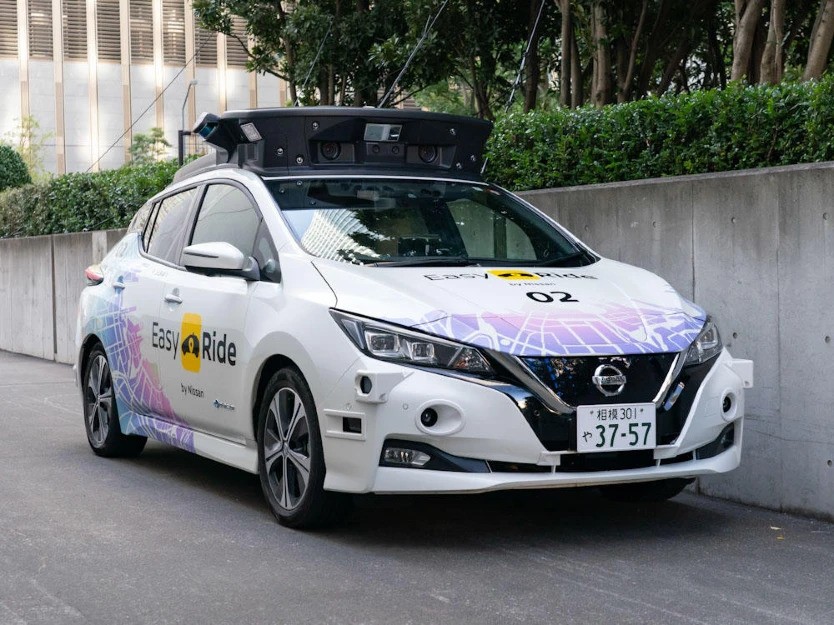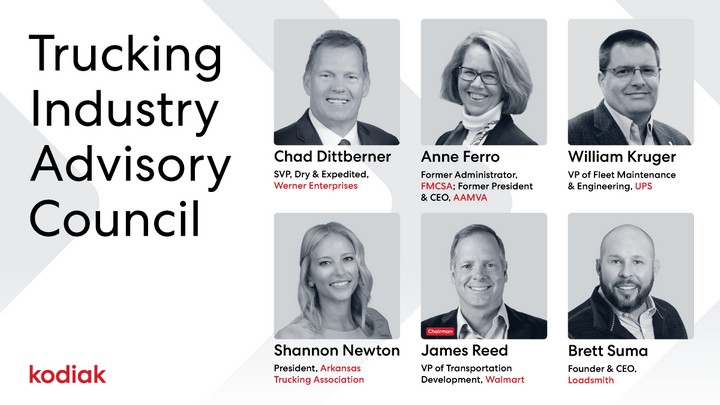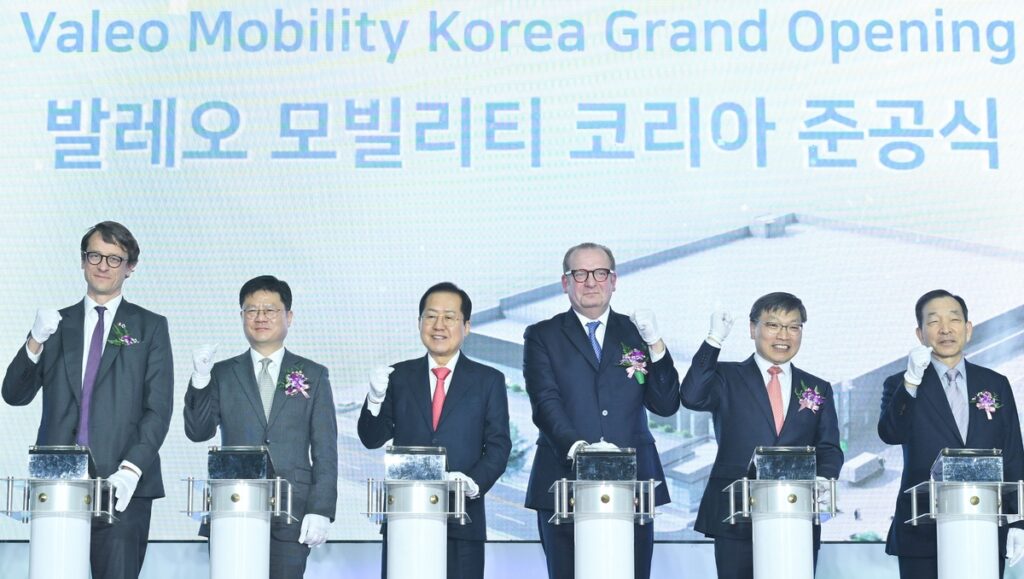
Vueron Newsletter
No. 103
2024.04.02
| Nissan launches Autonomous Mobility service | ||
| New York City welcomes robotaxis — but only with safety drivers | ||
| Valeo to build autonomous vehicle parts plant in Korea | ||
| Hyundai IONIQ 5 Robotaxi Passes Driver’s License Test to Demonstrate ‘Uncompromised Safety’ |
1. Nissan launches Autonomous Mobility service
- Nissan launches pilot tests for autonomous driving in Japan to address challenges posed by demographic changes and a shortage of drivers.
- The company aims to offer mobility solutions to solve transportation problems in local communities.
- Pilot tests are scheduled to start in the Minato Mirai district of Yokohama in 2024, gradually increasing the autonomy level of Serena minivans.
- Demonstration tests are planned in Yokohama from 2025, involving Minato Mirai, Sakuragi-cho, and Kannai areas, with 20 vehicles and safety drivers onboard.
- Nissan plans to commercialize its autonomous mobility services in Japan by the 2027 financial year.
- The services are expected to be launched in three to four municipalities with several dozen vehicles at SAE level 4 autonomy.

Autonomous mobility services offer a potential solution to transportation challenges faced by local communities, especially in urban areas. Commercializing autonomous mobility services by 2027 underscores Nissan’s commitment to advancing self-driving technology and its potential to reshape the automotive industry.
2. New York City welcomes robotaxis — but only with safety drivers
- New York City introduces a new permitting system for autonomous vehicle testing on its roads, requiring a human safety driver to be present at all times.
- The city aims to establish a rigorous program to ensure safe and proficient testing of autonomous technology in its challenging urban environment.
- Companies without prior autonomous vehicle testing experience in other cities will be excluded from applying.
- Applicants must provide details of previous tests, including crash information and instances where safety drivers had to take control (disengagements).
- Fully driverless vehicles will not be allowed to test on public roads; only vehicles with safety drivers will be permitted.
- Previous incidents involving driverless vehicles in cities like San Francisco have prompted concerns over safety and traffic obstruction.
- New York City’s approach seeks to avoid similar problems by mandating the presence of safety drivers at all times.
- Companies must obtain permits from the state Department of Motor Vehicles and adhere to best practices outlined by the Society of Automotive Engineers.
- Data from autonomous vehicle testing will be made available on the city’s Open Data portal, with certain data potentially withheld based on confidentiality requests.
- New York’s strict regulations have limited AV testing in the state, with companies often preferring states with friendlier regulations or closer proximity to their headquarters.
- Despite challenges, New York City’s large taxi market presents an attractive opportunity for robotaxi companies.

By requiring safety drivers and stringent permitting processes, the city aims to mitigate risks associated with autonomous technology while fostering its development.
3. Kodiak Establishes Autonomous Truck Advisory Council
- Kodiak Robotics announces the launch of its Kodiak Industry Advisory Council to shape its product development, deployment, and public engagement for autonomous trucks.
- The council consists of industry leaders from well-known brands and organizations in North American trucking, including the Arkansas Trucking Association, Loadsmith, Walmart, Werner Enterprises, and UPS.
- Former Kodiak CEO, James Reed, chairs the council, bringing extensive experience from both Silicon Valley and transportation sectors.
- Additional council members include Chad Dittberner from Werner Enterprises, Anne Ferro, former administrator of FMCSA, William Kruger from UPS, Shannon Newton from the Arkansas Trucking Association, and Brett Suma from Loadsmith.
- The council aims to guide Kodiak’s strategic roadmap, influencing the development and impact of autonomous trucks on the trucking industry and society.

By assembling a diverse group of experts, Kodiak seeks to leverage their insights and experiences to ensure the safe and efficient deployment of its driverless technology. The inclusion of representatives from various sectors of the trucking industry underscores the importance of addressing diverse perspectives and needs in the development of autonomous solutions.
4. Valeo to build autonomous vehicle parts plant in Korea
- Valeo, a global automotive components company, has constructed a factory for autonomous vehicle components in the Daegu National Industrial Complex.
- The dedication ceremony for the Daegu plant was held on the afternoon of the 28th, attended by the Mayor of Daegu, Valeo President Marc Breco, and Valeo Mobility Korea CEO Kim Min-gyu.
- The Valeo Daegu plant occupies a site area of 13,056 square meters with a gross floor area of 8,288 square meters.
- Mass production of ADAS (Advanced Driver Assistance System) components, crucial for autonomous vehicles, will commence at the plant this month.
- Initial production will focus on car parking assistance sensors, with plans to expand production to include radar sensors and cameras for autonomous vehicles.
- Valeo, founded in 1923, is a leading French automotive parts company with a global presence, operating in 29 countries with 175 manufacturing plants and 66 R&D centers.
- The President of Valeo’s CDA division, Marc Breco, highlights Daegu’s automotive industry and collaboration opportunities with academia as factors contributing to the decision to establish the plant.
- The Mayor of Daegu expresses support for Valeo’s role as a global leader in autonomous driving technology and pledges to assist in fostering its success in Daegu’s future mobility industry.

The collaboration between Valeo and Daegu highlights the importance of strategic partnerships between global corporations and local governments to drive innovation and economic development.
5. Hyundai IONIQ 5 Robotaxi Passes Driver’s License Test to Demonstrate ‘Uncompromised Safety’
- Hyundai Motor Company released a campaign film showcasing the all-electric, self-driving IONIQ 5 robotaxi completing a process similar to a U.S. driver’s license test.
- The video highlights the safety and reliability of the IONIQ 5 robotaxi’s autonomous technology, featuring it passing public-level driving tests in Las Vegas, U.S.
- The story begins with an interview with Pearl Outlaw, a visually impaired woman, and her mother, Ruth, emphasizing the challenges of mobility for individuals like Pearl.
- The IONIQ 5 robotaxi promises to offer independent mobility to people facing similar challenges, providing freedom of exploration without reliance on others.
- The driving test was conducted by Kandice Jones, a DMV Certified Driving Examiner, who praised the IONIQ 5 robotaxi’s performance in speed control, lane changes, stop sign adherence, left turns, and reaction time to hazards.
- The video showcases the IONIQ 5 robotaxi navigating both urban and suburban areas of Las Vegas effortlessly.
- The IONIQ 5 robotaxi represents the culmination of collaborative efforts between Hyundai Motor Group and autonomous driving technology developer Motional, with advanced sensors like LiDAR, radar, and cameras ensuring consistent driving performance.
- Hyundai aims to communicate the safety and trustworthiness of the IONIQ 5 robotaxi through the campaign, highlighting the positive changes it can bring to customers’ everyday lives.

The campaign film emphasizes the potential of autonomous driving technology to provide independence and mobility to individuals with disabilities, addressing significant societal challenges. The successful completion of public-level driving tests by the IONIQ 5 robotaxi in a major U.S. city like Las Vegas underscores the progress made in autonomous vehicle technology, suggesting a promising future for widespread adoption and integration into everyday life.
*Contents above are the opinion of ChatGPT, not an individual nor company

